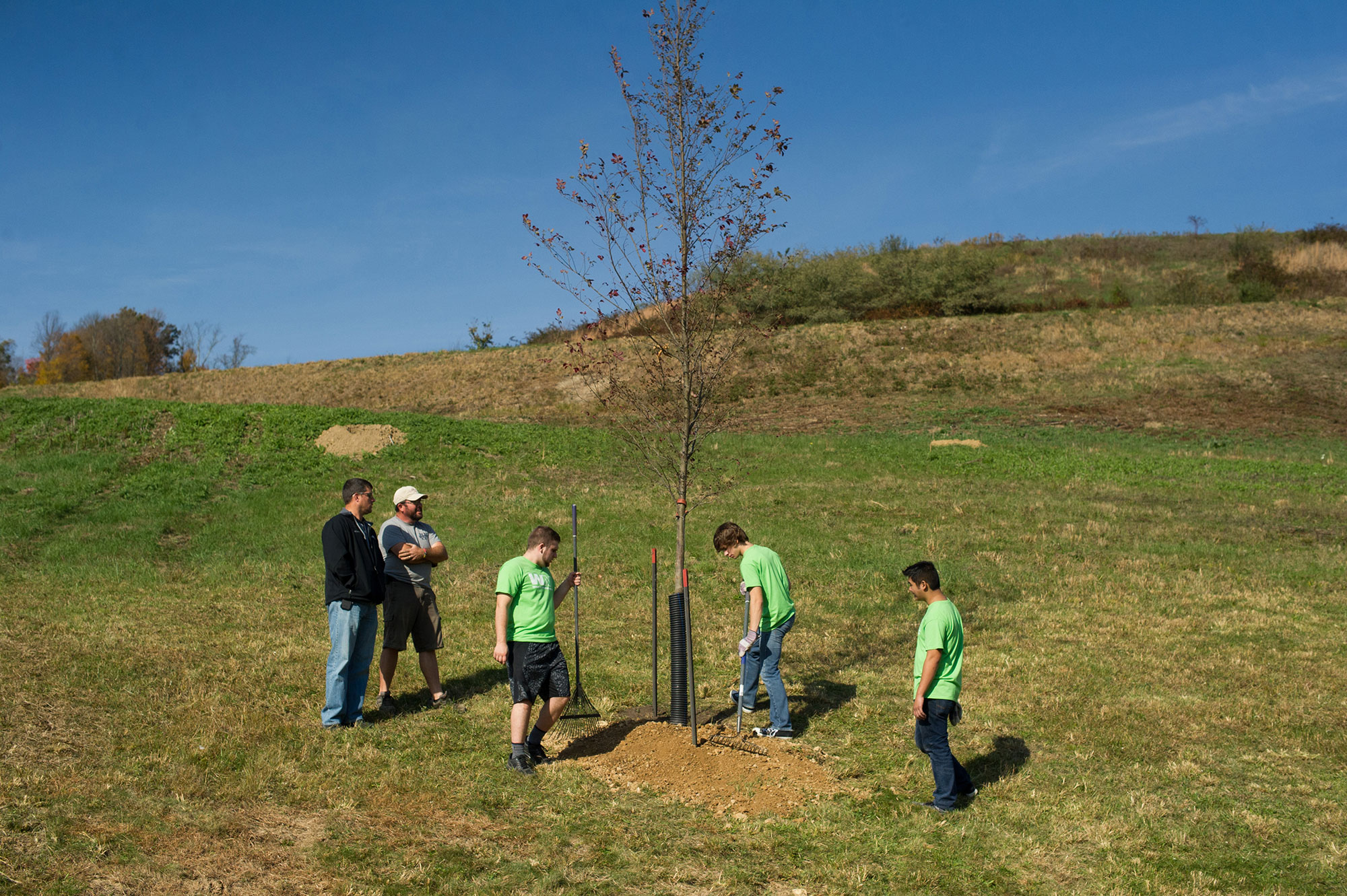
- Sustainability A-Z
- Communities
Communities
With a commitment to helping communities thrive by empowering people to live sustainably, WM is continuously working toward a sustainable tomorrow while being a good neighbor in the diverse places where we live and work.
As a key service provider for communities, we stretch beyond critical material management and sustainability services to prioritize meaningful engagement. In our communities, teams work with nonprofits to develop and support programs aligned with WM’s commitments and local needs. When it comes to community engagement, we focus on protecting and providing access to green space, providing access to education and filling gaps in communities.
Protecting and Providing Access to Green Space
WM owns a range of properties — large and small, urban and rural. Across those properties, WM teams work with Wildlife Habitat Council (WHC), the authoritative conservation program for businesses, to convert land to promote sustainability, wildlife preservation, biodiversity and environmental education.
Through this three-decade-long partnership, we transform land into certified wildlife habitat with programs ranging in scope from individual species management to large-scale habitat restoration projects. All projects are included in WHC’s Index, an interactive database that maps worldwide conservation projects.
In addition to providing nature-based solutions through biodiversity initiatives, they serve as outdoor education spaces that bring science, technology, engineering and mathematics (STEM) to life for the next generation. The programs also give team members an opportunity to teach the fundamentals of protecting habitat, natural ecosystems and biodiversity to neighbors who visit and spread the word about the value of environmental responsibility.
To scale up our biodiversity efforts and demonstrate how facilities can use a little land to make a big difference, we recently collaborated with WHC on proof-of-concept microforests, which are dense, fast-growing and biodiverse plantings on a small footprint (imagine the size of a tennis court). These plantings can act as carbon sinks, absorbing and storing carbon dioxide from the air. To help us better understand the environmental and social benefits of a microforest, we planted in two communities with environmental justice indicators. As these plantings mature, they will have the potential to help with stormwater management by absorbing rainwater and reducing erosion — one of many benefits nature-based solutions can bring to communities. To leverage learnings and expand impact, we co-developed a microforest toolkit which includes guidelines to help sites explore whether this nature-based solution is a fit for their property.
Beyond wildlife habitat, many of WM’s closed landfills have been converted into hiking trails, sports fields, golf courses, renewable energy installations and more.
Providing Access to Education
To help build future leaders, we extend access to education across our communities. This happens in the form of in-or-after school-based programs, youth engagement initiatives with local nonprofits, and through Wildlife Habitat Council projects that utilize the outdoors as a classroom.
We also support higher education programs, fund research grants at universities, and provide interactive learning modules to continuously teach students the value of recycling right. In addition, we grant millions of dollars towards scholarships through third-party, nonprofit organizations.
Filling Gaps in Communities
Being a good neighbor includes helping communities address unmet needs by supporting local organizations through volunteerism opportunities, serving neighbors through outreach programs and leveraging our scale to organize high-impact giving campaigns. For example, WM participates in holiday giving programs, food drives, donations and more to help provide access to goods and food in critical times. We also support neighborhood and community revitalization efforts to improve overall quality of life. Activities include litter cleanup efforts, building façade beautification, and more.
How We Engage and Other Examples
To ensure a unified approach in determining when, how and why community engagement occurs, we turn to community giving guidelines and eligibility criteria listed on the landing page of our giving platform.
See our annual sustainability report to explore how our latest programs and initiatives are helping communities thrive.